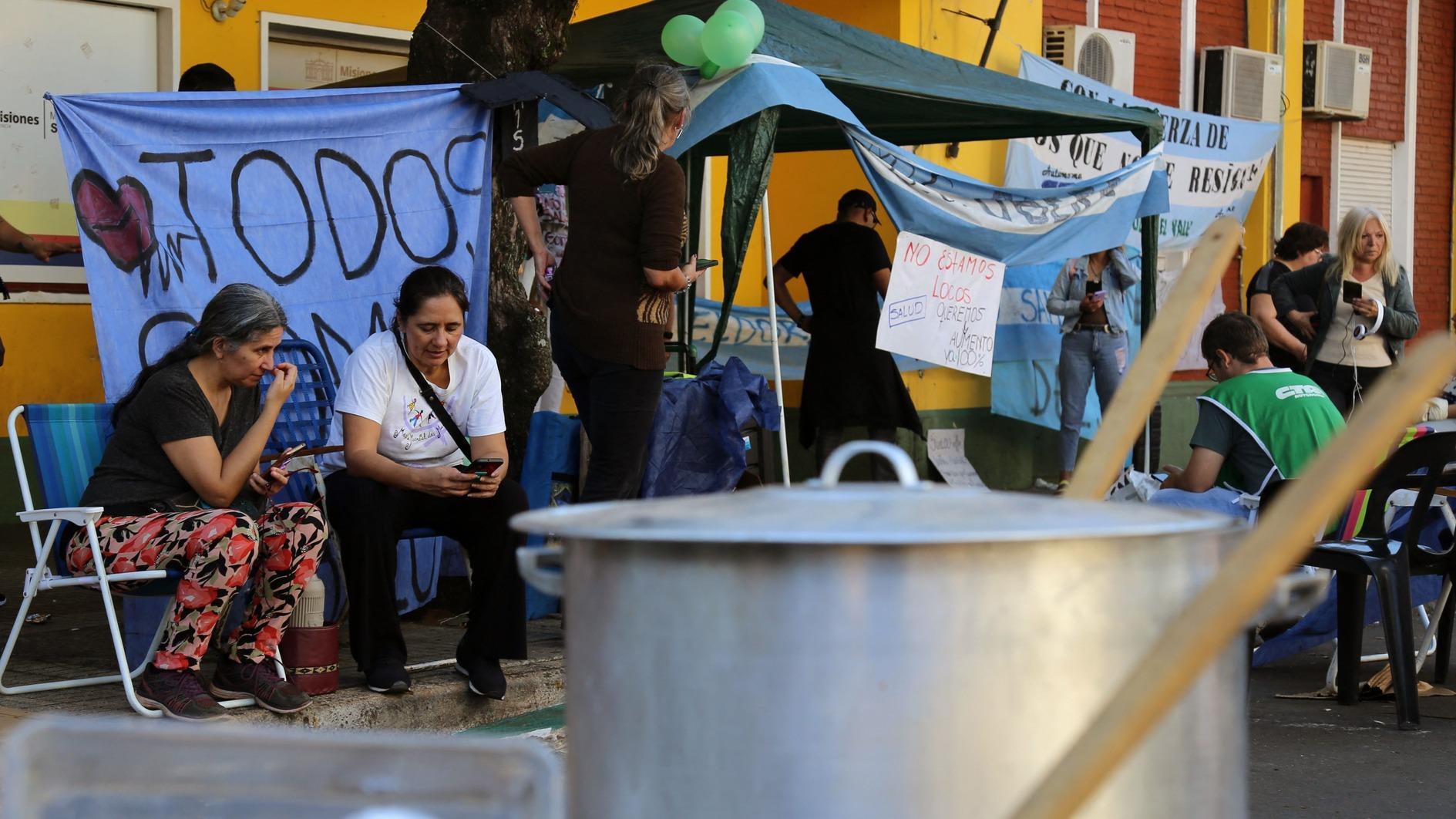
Argentina's economic activity continued to plummet in March, as President Javier Milei's government slashes spending, official figures have shown.
The national statistics agency, INDEC, said that economic activity had slowed 8.4 percent year-on-year in March, the biggest such interannual change since the COVID pandemic.
Milei took office in December, vowing to halt Argentina's economic decline and reduce the budget deficit to zero.
He slashed public spending, cut the cabinet in half, did away with tens of thousands of government jobs, suspended new public works contracts and ripped away fuel and transport subsidies.
He also devalued the peso by 50 percent, and the measures have hit consumers hard. While inflation is slowing, prices are still up some 290 percent from the previous year.
"Without a doubt, the path that the level of activity is following already speaks of a recession," said Joel Lupieri, an economist at the consulting firm EPyCA.
The construction industry saw economic activity drop 29.9 percent year-on-year after Milei cancelled almost all public works.
Manufacturing activity dropped 19.6 percent, as aluminum and steel factories, automakers and tire manufacturers laid off workers and cut production.
The overall slump in activity is on its fifth consecutive decline since November.
The consulting firm Equilibria estimates a total 240,000 job losses in the first quarter of 2024.
The latest official data from INDEC in 2023 said some 41 percent of the country was living in poverty. A more recent study from March this year by the Catholic University puts this figure at 55 percent.
The International Monetary Fund expects that Argentina's economy will contract by 2.8 percent this year.